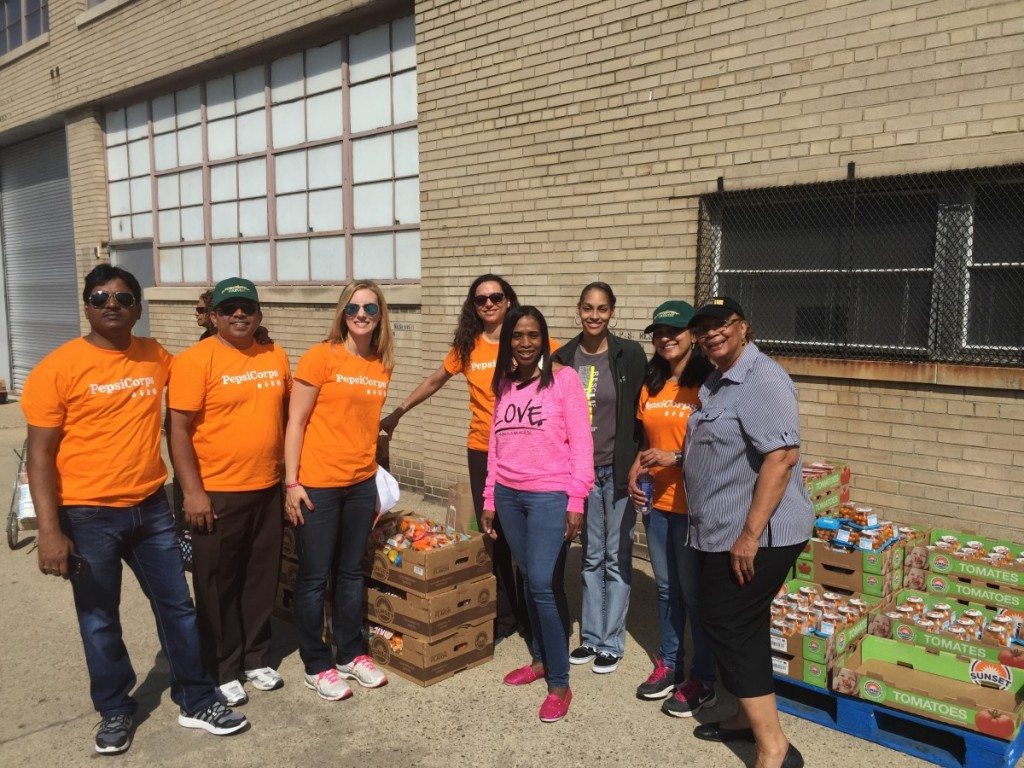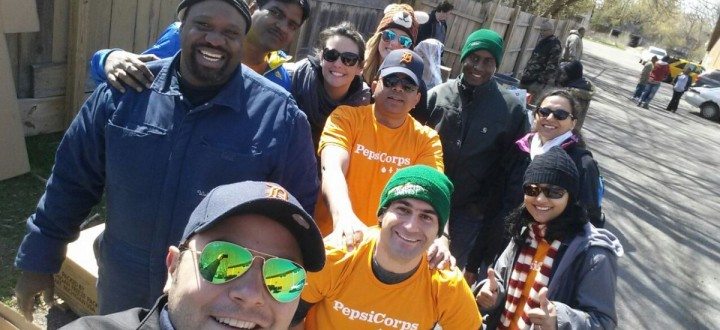This is the last in a three-part series about how investment and volunteering are supporting Detroit’s urban renewal. Read part one and two here.
Since filing for bankruptcy in 2013, the city of Detroit has been plagued by a number of challenges, including hunger. More than 48 percent of school-age children are eligible for subsidized meals, and one-third live in extreme poverty. PepsiCo asked its employees to help the city find a better approach to affordable nutrition.
Last month, I spent four weeks with seven colleagues developing a long-term, sustainable plan to make meals healthier and affordable for Detroit’s low-income residents. Our project was part of the PepsiCorps, a skill-based volunteer program in which associates from around the world form teams that are deployed to help local communities address societal challenges.
Before arriving in Detroit, I relentlessly researched the history of the city and the challenges facing its efforts to a resurgence. In the 1950s, Detroit was booming. But since then, the Motor City has battled a six-decade downward spiral of job loss, shrinking population, and a plummeting tax base. According to the 2010 census, Detroit’s per capita income is a third of that of the rest of United States.
According to one study, 97 percent of food stamp recipients exhaust the subsidy by the end of the third week of a month. This leaves children and families hungry. In the city, some families travel more than five miles for their grocery purchases, despite the lack of public transportation, in order to find the lowest prices and best deals.
These statistics were daunting, but I was determined to arrive in Detroit prepared to offer my expertise to help in solving these enormous challenges. But no amount of research could replace what I learned by walking the streets of the city, breathing the air, and getting to know its residents. The city and its people are beaming with a passion and vigor that is both infectious and awe-inspiring. Behind each ‘mom n’ pop’ store or local boutique is a story of creativity and determination.
Gleaners, the organization I was assigned to support, is a testament to this spirit of Detroit. As one of the largest and oldest food banks in the city, Gleaners has played a vital role within the community, in good times and in bad. By distributing donated and purchased food to more than 550 schools, soup kitchens, food pantries, shelters, senior homes, and other partner agencies, Gleaners is a vital link between available food and those who need it most.

Among its many initiatives, Gleaners is working to address the issue of affordable nutrition by enabling recipients of the Supplemental Nutrition Assistance Program (SNAP) to purchase healthy and affordable food through their SNAP dollars. To address this, Gleaners has identified an opportunity to initiate a ‘client choice’ pantry where consumers can buy foods high in nutritional value at subsidized rates.
Client choice is a model of food distribution that enables clients to select their own food, much like a grocery store. Unlike many food pantries that provide fixed boxes or bags of food with no ability to select the items included, client choice pantries allow clients the ability to choose from a wide variety of foods. This better enables clients to meet their personal dietary needs.
To support the vision of Gleaner’s client choice mobile pantry, we created a consumer and market understanding framework, a complete product portfolio, and pricing strategy to help in developing the initiatives long-term strategy. We interacted with several partner agencies working on Detroit’s social and economic welfare as well as the community liaisons to get a deeper understanding of the issues SNAP recipients in southwest Detroit were facing. We created a product portfolio aligned to the USDA’s nutrition guidelines as well as a pricing strategy to provide the most competitive value to the consumers.
Additionally, we worked directly with the food pantries once a week to distribute food and get a better sense of how food distribution works. It was humbling to bear witness to these daily challenges. But it was equally overwhelming to see the scale of volunteerism and sense of community involvement dedicated to ending hunger in Detroit.
Even though I am back to my country, my family, and my day job, my month in Detroit left an indelible mark on my mind, forcing me to reflect on food insecurity in my own country, India. I do see certain stark contrasts. Here, in a nation of 1.2 billion people, an estimated 33 percent of people live on less than $1.25 per day. The country is home to a quarter of all undernourished people worldwide. Forty-two percent of the world’s undernourished children live in India. The project gave me a chance to appreciate the dichotomy that exists in one of the most developed nations in the world, as I saw firsthand the scale of inequality in America, reminding me how complex of an issue hunger proves to be.
It was a tremendous experience to interact with seven new colleagues to support this complex challenge facing the city. Each brought a rich perspective from their different cultures and skill sets to arrive at a solution for our client partners, working together in a new territory and with a common mindset of “performance with purpose.”
Anuja Mishra
Anuja Mishra is an employee of PepsiCo India and is currently designated as the Sr. Brand Manager –Lay’s, she is responsible for brand building, strategic planning, campaign management and building new core platforms on brand Lay’s. As a selected participant for the Pepsi Corps program, Anuja along with 7 other Pepsicorps participants worked in Detroit with the local communities and food banks to help address the food & deprivation and nutrition using their multi-functional and multi-cultural backgrounds. Anuja has been involved in social projects such as education for the underprivileged children, social security for the senior citizens in India right from school.





